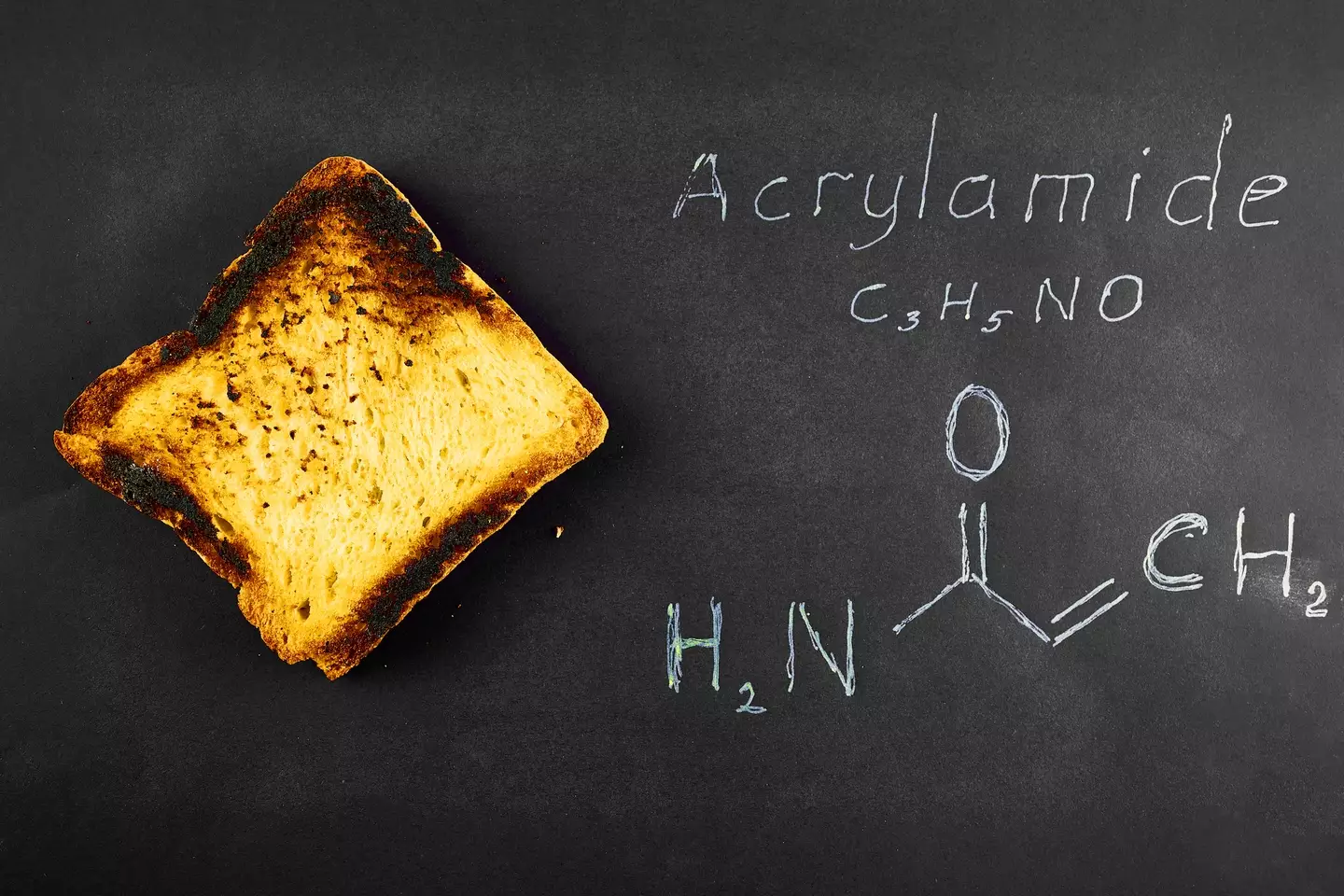
A chemical commonly-found in a popular breakfast option has been shown to potentially cause heart attacks and strokes.
Research from a team of Spanish experts found that a chemical known as ‘acrylamide’, formed during cooking processes, may increase the risk of these health complications by as much as 60%.
By analysing dozens of studies from 2007 onwards and covering 100,000 people, the researchers found that high acrylamide intake could be a prolific silent killer.
Extreme levels of acrylamide have been linked to as much as an 84% increase in cardiovascular-related deaths among vulnerable individuals, such as those with or at risk of developing type 2 diabetes.
Advert

So, where does this nasty chemical come from?
Acrylamide is produced when starchy foods such as bread and potatoes are cooked, and it’s particularly abundant among burned carbohydrates.
If you regularly eat blackened bread – as is some people’s preference – then you’re consuming a lot of the stuff.
The average level of diet-based acrylamide intake ranges between 32.6 and 57 micrograms per day, according to the study, with negative cardiovascular consequences found among those at the higher end of that scale.
Professor Oliver Jones, a chemistry expert at RMIT University in Melbourne, Australia, told The Telegraph that there’s around 4.8 micrograms of acrylamide content in the average slice of toast.
"It is a ubiquitous food processing contaminant to which the entire population is unintentionally exposed throughout life,” the researchers said, according to the MailOnline.
"Exposure to acrylamide comes not only from ultra-processed foods, but also from home-cooked and restaurant foods, even when using new cooking methods such as air frying.
"Given the above mentioned, finding ways to mitigate acrylamide production and consumption is one of the most important areas of research in the food industry.

"The population is largely unaware of acrylamide production in home-cooked foods and its presence in their daily diet.
"Moreover, browned foods are mistakenly perceived as more appealing and flavourful."
"The increase in the consumption of ultra-processed foods in recent decades, especially among adolescents, remains a public health concern."
The good news is that some believe you would need to eat an awful lot of the stuff to be considered high-risk.
In the BBC's Food: Truth or Scare, Sir David Spiegelhalter, Professor of Statistics at Cambridge University, said that you would have to eat 160 burnt slices of toast each day to realise the full range of negative consequences.
Nevertheless, it’s good cause to pare back the blackness of your toast.
